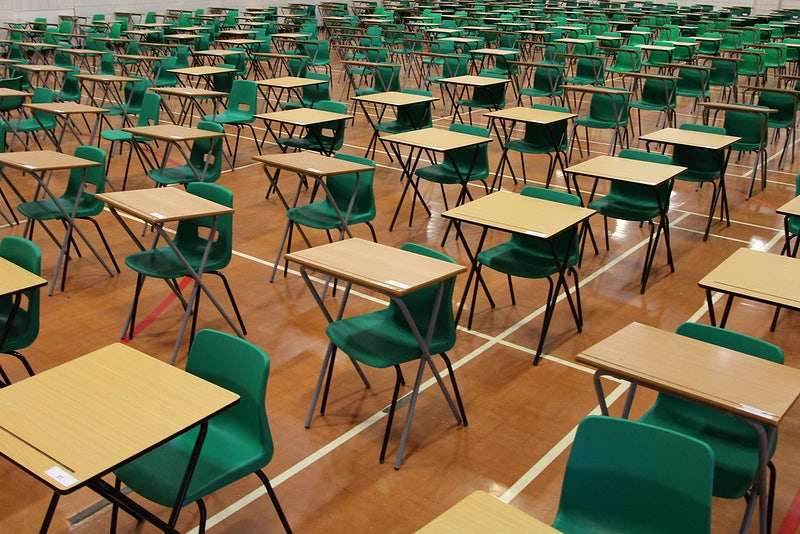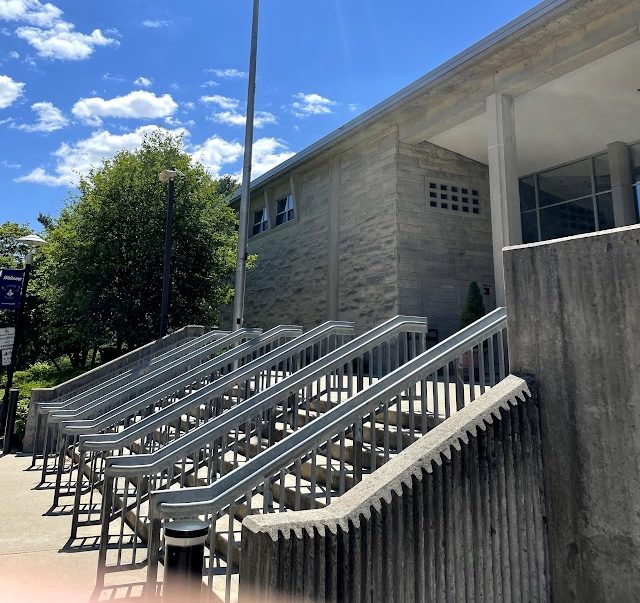Following the announcement of a personal device ban in Fairfield Public Schools, staff from The Prospect at Fairfield Ludlowe and The Focus at Fairfield Warde collaborated to create and spread a survey to capture reactions of students, and families in the Fairfield community. As student publications, the Prospect and the Focus strive to provide a platform for members of our community to share their voices and be heard. Nearly 600 students and parents of current and past students answered, revealing a combination of anxiety, irritation, relief, and uncertainty.
Having two high schools in the district with total student populations surpassing 2,800, the new policy feels logistically unsound to students. Already hallways are packed, designated drop-off areas are flooded with traffic in the mornings, and the senior parking lots are gridlocked during arrival and dismissal times. With each individual pouch needing to be locked and unlocked upon entering and exiting the building, students expressed worries about problems arriving to class on time in the morning and leaving school to be on time for practices, rehearsals, or the bus. Exact locations and availability of unlocking magnets are still unknown, and at an assembly Ludlowe administrators explained that locking and unlocking the pouches can be finicky or take multiple attempts.
Utilizing pouches as a tool to enforce the policy will be an annual expense of over 100,000 dollars a year for the district, a figure provided by members of the Fairfield Board of Education during their meeting on May 27th, 2025. In theory, the use of pouches holds everyone accountable and releases teachers from the burden of monitoring students and ensuring that they follow guidelines; however, many parents and students reported feeling shocked by the decision to take on such an expense.
In particular, students involved in high-commitment extracurriculars like music, athletics or theater, and their parents expressed the most concern towards the ban. Students explained in the survey that their advisors are often forced to modify timing or location of practices or meetings without warning due to various factors such as inclement weather or conflicts over spaces. This creates a need to get in contact with students quickly through phones with apps such as Remind. These alerts usually come in during the middle of the school day, either during class or passing time, giving students as much time as possible to organize any necessary rides and convey the information to their parents during any free time.
Students and parents are aware of the options available to communicate, including via email or using a school phone, but many explained how these methods are time consuming and less convenient for them. Email isn’t ideal for time sensitive communication, and parents prefer to text their student instead of making calls through the school secretaries. While communication will still be possible, students and families in 2025 feel that email will never be ideal for their needs even after taking time to adjust, causing much frustration that both groups revealed through their survey responses.
Students answering the survey also expressed a desire for privacy when communicating with their parents, which would be difficult while utilizing the office phones. Several students mentioned having experiences starting their menstrual cycle and calling their parents or friends for menstrual products and a change of clothes, difficult things for the school to provide in a situation that the student wants to be handled with respect and privacy. Others mentioned handling their anxiety and busy lives through quick check-ins with trusted adults via their phones during downtime. Some shared their personal circumstances in the anonymous survey, explaining that they would lose time to connect with parents working night shifts or would struggle to manage heavy responsibilities as primary caretakers for other family members. In general, Fairfield students are anticipating this policy change with great anxiety and uncertainty, unsure how they will be able to adapt their unique challenges and responsibilities to this blanket policy for all students.
Across the student bodies at both high schools, Fairfield students expressed that they want to take responsibility for their learning and prepare for success beyond high school. Alumni responded to our survey stating that they have access to their phones in college and use their learned time management skills and self control in order to be successful. The majority of survey respondents believe that the existing policy, banning phone use during instructional time using wall-mounted caddies, was sufficient to keep students on task in class. Students generally agreed that they value phone-free learning environments and believe devices should be strictly regulated during instructional time, but want to choose how they use downtime at school and manage responsibilities using their personal technology.
On October 6th, the day the policy goes into effect, students, families, and faculty anticipate the start of a major adjustment period, as kinks in the system are worked out and the culture of the schools begin to shift. The wide variety of feelings revealed in the survey, from relief to frustration to anxiety, make it extremely clear that Fairfield high school communities are passionate about this issue, and the validity of their feelings is yet to be determined. The Prospect will continue to report.


![[Charlie Kirk] by [Gage Skidmore] is licensed under [CC BY-SA 2.0].](https://flhsprospect.com/wp-content/uploads/2025/09/charlie-kirk-article-1200x800.jpg)












